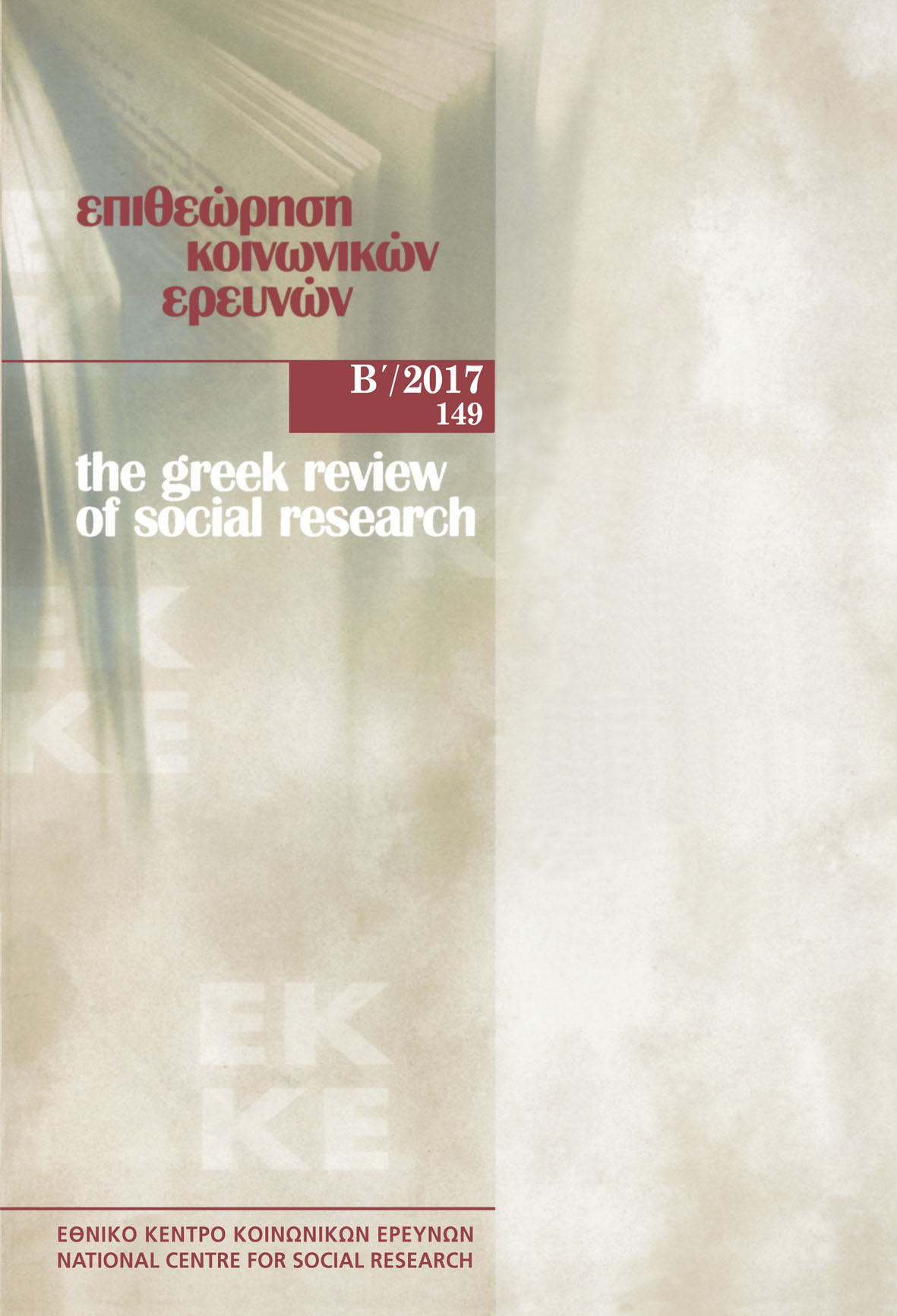Γέφυρες αλληλεγγύης: Εναλλακτικές οικονομίες διατροφής στην αστική Ελλάδα

Περίληψη
Εστιάζοντας στο αστικό-περιφερειακό συνεχές στο χώρο της Θεσσαλονίκης, αυτή η μελέτη διερευνά τις απτές κοινωνικές δραστηριότητες ορισμένων ομάδων που έχουν αφοσιωθεί στο χτίσιμο μιας «κοινωνικής οικονομίας» διανομής τροφής χωρίς μεσάζοντες. Τα εθνογραφικά δεδομένα (που συνέλεξα μεταξύ 2013-2015), αφορούν τις από-τα-κάτω απαντήσεις προς τις δυσκολίες που ζουν οι άνθρωποι σε ζητήματα των τα προς το ζην τους ζητημάτων. Στο φως αυτών των δεδομένων, προτείνω να ανοίξουμε τα εννοιολογικά όρια της αμοιβαιότητας, έτσι ώστε να συμπεριλάβουμε την αλληλεγγύη, ως ημική έννοια με πολιτισμικές συμπαραδηλώσεις συγκυριακές της κρίσης. Η «οικονομία αλληλεγγύης» μπορεί να ιδωθεί ως μια εννοιακή και πολιτική γέφυρα που συμβολικά, αλλά και υλικά, φέρνει κοντά κοινότητες παραγωγής και κατανάλωσης τροφής. Η έννοια του «χωριού» είναι μια πρωτότυπη μετωνυμία που χρησιμοποιούν οι αστοί ακτιβιστές στα συστήματα διανομής τους, για να δηλώσουν μια συγκεκριμένη κοσμολογία σχέσης με το φαγητό και τα υλικά διατροφής. Η έννοια επικαιροποιείται με σημαίνοντες τρόπους, στην παρούσα συγκυρία λιτότητας στη χώρα.
Λεπτομέρειες άρθρου
- Πώς να δημιουργήσετε Αναφορές
-
Rakopoulos, T. (2018). Γέφυρες αλληλεγγύης: Εναλλακτικές οικονομίες διατροφής στην αστική Ελλάδα. Επιθεώρηση Κοινωνικών Ερευνών, 149, 121–136. https://doi.org/10.12681/grsr.15818
- Ενότητα
- Άρθρα

Αυτή η εργασία είναι αδειοδοτημένη υπό το CC Αναφορά Δημιουργού – Μη Εμπορική Χρήση 4.0.
Οι συγγραφείς των άρθρων που δημοσιεύονται στην Επιθεώρηση Κοινωνικών Ερευνών διατηρούν τα δικαιώματα πνευματικής ιδιοκτησίας επί των άρθρων τους, δίνοντας στο περιοδικό το δικαίωμα της πρώτης δημοσίευσης. Άρθρα που δημοσιεύονται στην Επιθεώρηση Κοινωνικών Ερευνών διατίθενται με άδεια Creative Commons 4.0 και σύμφωνα με την άδεια μπορούν να χρησιμοποιούνται ελεύθερα, με αναφορά στο/στη συγγραφέα και στην πρώτη δημοσίευση για μη κερδοσκοπικούς σκοπούς.
Το Εθνικό Κέντρο Κοινωνικών Ερευνών διατηρεί το δικαίωμα να δημοσιεύει, να αναπαραγάγει, να παρουσιάζει στο κοινό, να διανέμει και χρησιμοποιεί άρθρα που δημοσιεύονται στην Επιθεώρηση Κοινωνικών Ερευνών σε οποιοδήποτε μέσο και μορφή είτε μεμονωμένα είτε ως μέρη συλλογικών έργων, για όλο τον χρόνο διάρκειας προστασίας της πνευματικής ιδιοκτησίας και για όλες τις χώρες του κόσμου. Αυτό περιλαμβάνει ενδεικτικά και όχι αποκλειστικά το δικαίωμα δημοσίευσης των άρθρων σε τεύχη της Επιθεώρησης Κοινωνικών Ερευνών, αναπαραγωγής και διανομής μεμονωμένων αντιγράφων των άρθρων, αναπαραγωγής ολόκληρων των άρθρων σε άλλη έκδοση του Εθνικού Κέντρου Κοινωνικών Ερευνών, καθώς και αναπαραγωγής και διανομής των άρθρων ή περίληψης αυτών με χρήση πληροφορικού συστήματος αποθετηρίου.


